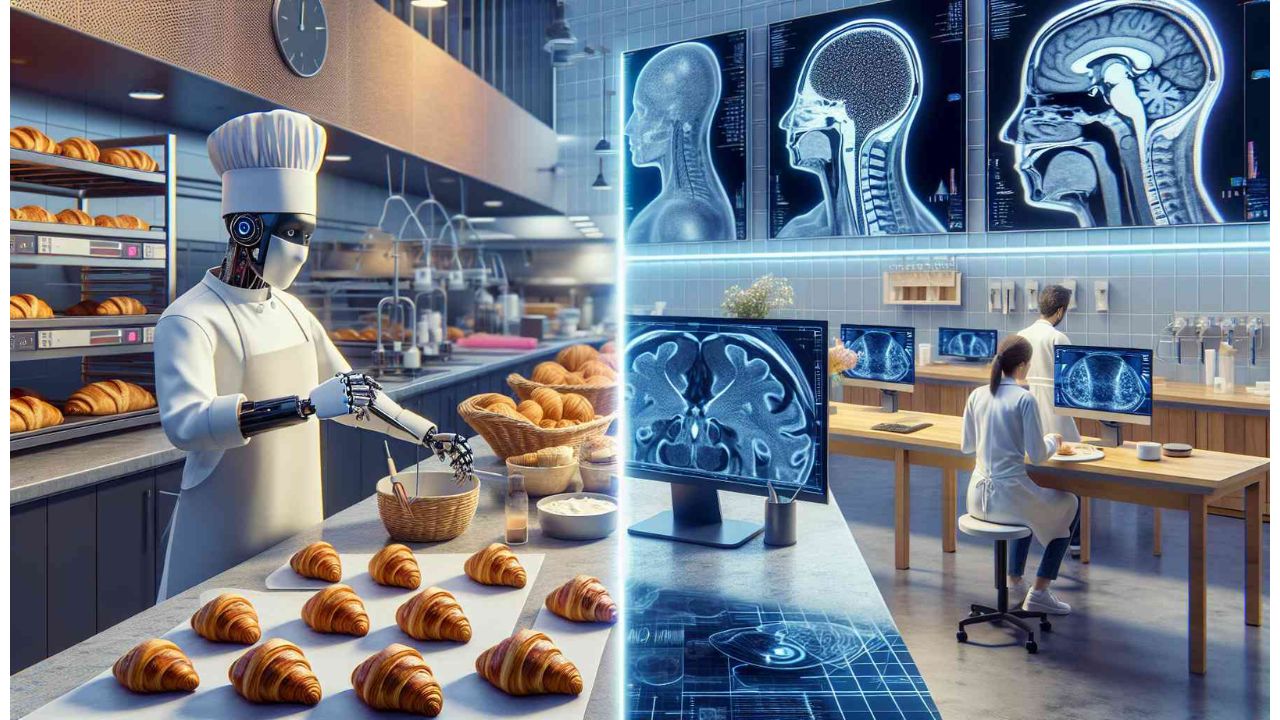AI Tech Revolutionizing Bakeries to Detect Cancer
The Japanese company Brain Co. first created AI to help cashiers at bakeries tell the difference between different kinds of baked goods.

AI Tech Revolutionizing Bakeries to Detect Cancer: Deep learning and visual AI got their start in the early 2000s. About 40 years before that, in Japan, another visual learning tool was being made. A bakery is an odd place for a technological change to start, but that’s where the program came from.

The Japanese company Brain Co. first created AI to help cashiers at bakeries tell the difference between different kinds of baked goods. Now, it says that this technology is being used to find cancer cells up to 99% of the time.
Cognitive technology from Brain Co. can be used in a wide range of situations, showing how flexible and useful it is. It shows how flexible AI systems are; tools made for shopping can be used in healthcare in very important ways to solve some of society’s biggest problems.
It wasn’t based on typical images and diagnoses for cancer detection, but it did require teaching the AI to recognize cellular abnormalities that could mean there is cancer. This was a much more difficult and important task than its original programming for bakery point-of-sale systems.
The company’s move marks the start of a new era in medical testing, one in which technology that was first made to make life easier for consumers is used to help find and treat life-threatening diseases early on. This change could lead to easier-to-use and more available diagnostic tools, which could completely change how doctors deal with and fight cancer.
A US military aircraft crashed into the sea near the southern Japanese city
BrainCo also came up with the BakeryScan
Variety is more important than specialty standards in Japan. For example, selling a lot of different baked goods makes more money than selling just a few classics (Somers, 2021). Another thing that makes Japanese people like unwrapped sweets is that they look fresher than those that are wrapped in plastic (Somers, 2021). This caused a lot of trouble for Japanese bread workers. Barcodes couldn’t be put on the cakes because they weren’t wrapped. This meant that workers had to remember every kind of bread, and in one bakery there could be anywhere from 30 to 100 different kinds (Somers, 2021). The whole process of checking out at the bakery took too long and was wrong.
Around 2007, CEO of BRAIN Co., Ltd. Hisashi Kambe was asked to make a computer program that could make the checkout process automatic (Somers, 2021). It had been 5 years since AlexNet came out, and deep learning technology wasn’t fully developed yet. Because of this, Kambe’s team had to use standard machine learning.
Kambe’s team used the old-fashioned way of learning, and BakeryScan was made available to everyone in 2013. Now, customers would put the treats they want to buy under the machine’s camera instead of having the cashier remember tens of different kinds of bread.
Next, BakeryScan would take a picture of the sweets and figure out what kind they were by looking at things like the crescent shape of a croissant or the yellow middle of an egg tart. Someone will have to tell the machine what kind of bread it is if it doesn’t know itself. The machine learns and gets better at telling the difference between the people it is fed.
About Brain Co.
BrainCo is a Brain-Machine Interface (BCI) business that makes technologies that connect the brain to computers. Bicheng Han is the CEO and founder of BrainCo.
The Harvard Innovation Lab helped the company grow after it was formed in 2015. BrainCo specializes in research and development (R&D) in the areas of AI, machine learning, and design.
